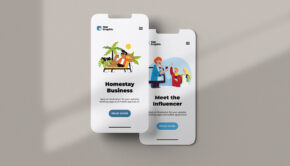Mastering Application Testing: A Comprehensive Guide to Types and Benefits
Whether you’re a developer, project manager, or a curious end-user, this guide aims to provide you with a deep dive into the diverse world of application testing. By exploring various examination types from functional to compatibility, we’ll unpack their unique benefits and applications.
Functional Testing: Ensuring Proper Functionality
Functional Testing revolves around a simple concept: Does the application work as designed? Every software application has features, and functional examination seeks to ensure that these features perform their intended operations.
Benefits:
Early Bug Detection: The earlier a bug is identified, the cheaper it is to rectify. Functional testing allows teams to catch errors before they escalate.
Improved User Experience: A functional app is the cornerstone of a good user experience. By ensuring each feature works, you guarantee a smoother user journey.
Reduced Development Costs: Finding and fixing defects after release can be costly. Functional examination helps reduce these unexpected expenses.
Usability Testing: Enhancing User Experience
When we talk about Usability Testing, we’re delving into the realm of user-friendliness. It’s not just about whether the app works, but how intuitive and easy it is for users.
Benefits:
Identify User Pain Points: Through usability examination, feedback reveals areas of friction, allowing teams to prioritize refinements.
Increase User Satisfaction: An intuitive app keeps users returning. Usability testing refines the user interface, enhancing overall satisfaction.
Building a Competitive Advantage: In a sea of apps, those prioritizing usability stand out, offering a more user-centric experience.
Performance Testing: Optimizing Application Speed and Stability
Performance Testing evaluates the efficiency of your application. How fast does it load? Does it crash under strain?
Benefits:
Improved Application Performance: Identifying bottlenecks and refining code means a smoother and faster user experience.
Scalability: Understand how your app behaves under pressure, ensuring it can handle growth in users or data.
Reduced Downtime: By anticipating and mitigating potential system failures, performance testing minimizes disruptions to users.
Security Testing: Safeguarding Sensitive Data
Security Testing isn’t a luxury—it’s a necessity. With cyber threats escalating, it’s imperative to identify vulnerabilities within an application. To do this you might need professional application testing service and here are the benefits.
Benefits:
Protecting User Data: A breach isn’t just a PR nightmare; it jeopardizes user trust. Security testing fortifies your app against potential attacks.
Maintaining Regulatory Compliance: Many industries have strict data protection regulations. Security examination ensures you adhere to these standards.
Building Trust Among Users: An app known for its robust security attracts and retains more users, thanks to the peace of mind it offers.
Compatibility Trial: Ensuring Cross-Platform Functionality
In today’s diverse tech landscape, Compatibility Testing is indispensable. Your application should deliver a consistent experience, whether accessed from a smartphone, desktop, or tablet.
Benefits:
Broader User Reach: By catering to a myriad of devices and browsers, you maximize your user base.
Consistent User Experience: Users expect a uniform app experience, regardless of the platform. Compatibility examination ensures they get it.
Reduced User Complaints: Fewer compatibility issues mean fewer user grievances, leading to higher retention and positive reviews.
Exploring Cross-Functional Testing
Cross-Functional Testing is like conducting an orchestra, where various examination types harmonize for a comprehensive assessment. It’s about seeing the bigger picture and understanding how different aspects of your app interact.
Scenarios:
New Feature Releases: When introducing a new feature, it’s not enough to check if it works. One must evaluate its functionality, performance, usability, and potential security risks.
Choosing the Right Trial Types for Your Application
There’s no one-size-fits-all in application testing. Your app’s nature, target audience, and business objectives dictate your examination approach.
Tips for a Robust Testing Strategy
Understand Your Audience: A gaming app may prioritize performance testing, while a banking app will emphasize security.
Combine Test Types: Leverage cross-functional trial for a holistic approach.
Iterate: Testing isn’t a one-time activity. As your app evolves, revisit and refine your trial strategies.

















